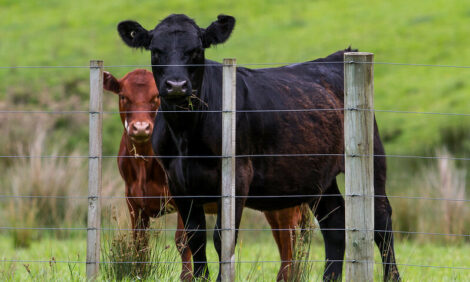



USDA Secretary suspends live cattle, horse and bison imports across the Mexico border, effective immediately
New World Screwworm (NWS) detected in remote farms with minimal cattle movement as far north as Oaxaca and Veracruz, about 700 miles away from US borderOn Sunday, US Secretary of Agriculture Brooke L. Rollins announced the suspension of live cattle, horse and bison imports through US ports of entry along the southern border due to the continued and rapid northward spread of New World Screwworm (NWS) in Mexico, effective immediately.
The United States and Mexico continue efforts to interdict and eradicate NWS in Mexico and work in good faith. However, despite these efforts and the economic impact on both countries due to this action, there has been northward advancement of NWS and Secretary Rollins has determined that additional action must be taken to slow the northern progression of this deadly parasitic fly.
Effective immediately, the USDA Animal Plant Health Inspection Service (APHIS) in conjunction with Customs and Border Protection (CBP) will restrict the importation of live animal commodities originating from, or transiting Mexico. This import suspension will persist on a month-by-month basis, until a significant window of containment is achieved.
USDA will continue constant collaboration with Mexico, including a review of latest data and metrics in two weeks. The teams report that they have been in daily communication discussing how to build on the work that has been accomplished to improve the strategy toward eradication. Any livestock currently in holding for entry into the United States will be processed normally, this includes an APHIS port Veterinary Medical Officer inspection exam and treatment to ensure they are not carrying NWS.
“The United States has ordered the suspension of livestock imports through ports of entry along our southern border after the continued spread of the New World Screwworm in Mexico. Secretary Berdegué and I have worked closely on the NWS response; however, it is my duty to take all steps within my control to protect the livestock industry in the United States from this devastating pest,” said Secretary Rollins. “The protection of our animals and safety of our nation’s food supply is a national security issue of the utmost importance. Once we see increased surveillance and eradication efforts, and the positive results of those actions, we remain committed to opening the border for livestock trade. This is not about politics or punishment of Mexico, rather it is about food and animal safety.”
According to Reuter's, Rollins' Mexican counterpart, Julio Berdegue, swiftly rebuked the action, but said he hoped the two countries could soon come to an agreement over the pest.
"We don't agree with this measure," he said in a post on social media, adding that it would be in place for 15 days.
Effective eradication, which remains a shared goal between the two countries and in the best interest of both the US and Mexico, requires a three-pronged approach:
- robust active field surveillance with education and outreach to ensure prevention, treatment, and early detection;
- controlled animal movement to limit spread;
- and sustained sterile insect dispersal.
The National Cattlemen’s Beef Association (NCBA) acknowledged in a press release that the border closure will create economic harm for US farmers and ranchers, and create supply chain disruptions, but the costs will be far less than if NWS crosses into the United States and the industry is forced to fight the pest on US soil.
“USDA’s border closure was entirely avoidable. U.S. government officials, NCBA and leaders from affiliated state cattle industry associations have been sounding the alarm for months. Unfortunately, the Mexican government created unnecessary bureaucratic hurdles which rendered prevention efforts ineffective and allowed screwworm cases to spread unchecked beyond control points in southern Mexico,” said NCBA CEO Colin Woodall. “The Mexican government’s failure to knock down senseless obstacles has left America with no alternative but a closure of the U.S. border until the outbreak is verifiably stopped and the flies pushed back south of Panama’s Darien Gap.”
Suspending livestock transport through southern ports of entry will assist in the effort to limit northbound transport of NWS through livestock commerce and will allow the US to reassess whether current mitigation standards remain sufficient. The northward spread of NWS is possible through natural wildlife movements, including wildlife that transit the border region without impediment.
APHIS is releasing sterile flies through aerial and ground release at strategic locations, focusing on Southern Mexico and other areas throughout Central America. A complete list of regions APHIS recognizes as affected by NWS as well as more detailed information on trade restrictions can be found on the USDA APHIS Animal Health Status of Regions website.
Headline image courtesy of Penn State University



